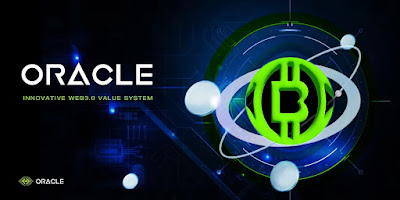Orchestrating Secure and Efficient Trade Processing through Blockchain and Microtransactions.
The marriage of blockchain technology and microtransactions has given rise to a transformative approach to trade processing, characterized by heightened efficiency and security. As blockchain technology evolves and expands its reach, microtransactions emerge as a novel means of transaction processing, capable of breaking down trades into smaller, parallelizable units.
This innovation serves to enhance trade processing efficiency, thereby diminishing transaction costs and confirmation times. Nonetheless, the integration of microtransactions into the blockchain landscape also introduces novel security challenges, such as transaction replay attacks and double-spending vulnerabilities. Addressing these concerns, the collaboration between Oracle's prediction network and microtransaction technology presents an ingenious solution, elevating trade processing to new heights of efficiency and security.
Microtransactions: The Concept and Distinctive Features
Microtransactions, a technology that dissects large volumes of transactions into minuscule units, embody several distinctive traits:
1. Diminished Trade Magnitude: Microtransactions deviate from conventional trade practices by focusing on smaller trade sizes. Consequently, significant trades can be divided into numerous smaller counterparts for processing.
2. Concurrent Multitrading: One of microtransactions' primary advantages is their capacity to accommodate multiple small trades executed concurrently, a feature that bolsters the efficiency of trade processing.
3. Reduced Transaction Costs: The subdivision of substantial transactions into smaller units not only enhances processing efficiency but also reduces the transaction costs associated with each individual trade.
Benefits and Complexities of Microtransactions
Benefits:
Microtransactions introduce a paradigm shift by amplifying trade processing efficiency while concurrently driving down costs. This innovation is particularly well-suited for scenarios necessitating swift trade execution, such as high-frequency trading and lightweight payment systems.
Complexities:
However, the implementation of microtransactions invites an augmented requirement for data and functionality and introduces unique security challenges. These challenges encompass potential transaction replay attacks and the risk of double-spending, both of which jeopardize data integrity and increase trade-associated risks.
Synergy between Oracle's Prediction Network and Microtransactions
To heighten the security and reliability of microtransactions, Oracle's prediction network has seamlessly integrated microtransaction technology, yielding a powerful solution for secure and efficient trade processing.
1. Mitigating Transaction Replay Attacks: The reduced trade volume in microtransactions renders them susceptible to replay attacks. Oracle's prediction network counters this vulnerability by introducing mechanisms such as timestamps and random numbers. These safeguards guarantee the uniqueness of each transaction, precluding data distortion.
2. Tackling Double-Spending: The petite nature of microtransactions exposes them to the risk of double-spending. Through vigilant real-time monitoring of trade data's legitimacy, Oracle's prediction network counteracts this concern. This oversight ensures the uniqueness of each transaction, thwarting instances of duplicate payments.
3. Efficiency Meets Security in Trade Processing: The confluence of Oracle's prediction network and microtransaction technology orchestrates efficient and secure trade processing. This collaboration empowers each network node to participate in trade processing and validation, leveraging parallel processing to amplify efficiency and curtail costs. Furthermore, the integrated security and verification mechanisms within Oracle's prediction network fortify trade security and reliability.
In Conclusion
The symbiotic alliance between Oracle's prediction network and microtransaction technology unveils a forward-looking approach to trade processing that's both secure and efficient.
The application of microtransactions heralds innovation and progress in trade processing, catering specifically to the demands of high-frequency trading and lightweight payment environments. As blockchain technology advances and proliferates, the potential for further innovation and advancement in trade processing during the digital epoch is undeniably promising.






Comments
Post a Comment